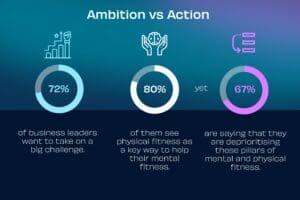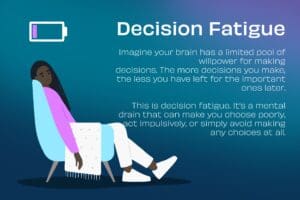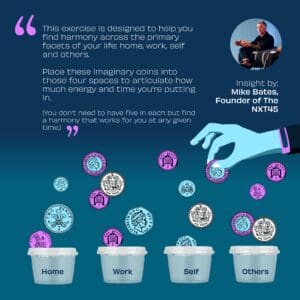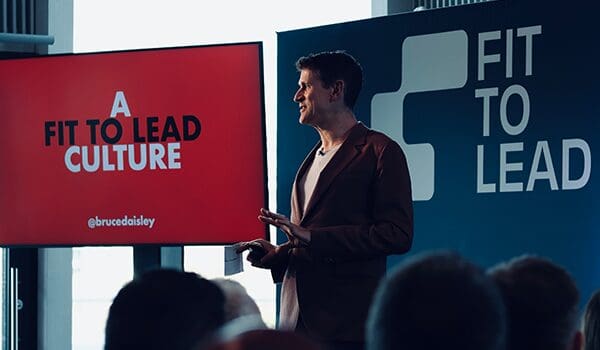-
What This Blog Covers:
- Get to Know the Host and Panellists
- The Undeniable Connection Between the Mind and Body
- The ‘Always-On’ Culture
 A Bit About Chris Paton (Host)
A Bit About Chris Paton (Host)
With over 30 years of leadership experience – more than half of which was spent in the Royal Marines – Chris was the perfect host to guide the insightful panel discussions. He is the Director at Quirk Solutions, a consultancy specialising in leadership training, organisational culture and change. Over the last six years, Chris has supported Babble’s growth by developing our leaders at all levels and helping us improve our M&A integration from a people and culture perspective.
Get To Know The Panellists
Dr. Steve Ingham
Since 1999, Steve has worked with the British Olympics: training and supporting over 1,000 athletes, resulting in over 200 medals and medallists at either World or Olympic standards. After being with the British Team through five Olympic cycles, he is now working with the French team. Leveraging his expertise in elite athletes, Steve runs an organisation called MutoFit, which is helping executive leadership teams adopt best practices from the sports industry.
 Orla Chennaoui
Orla Chennaoui
Also in the world of sports, Orla is a well-known powerhouse of presentation and broadcasting. Her work includes reporting on the Olympics, cycling for Warner Brothers Discovery, and rugby for TNT Sports. She is heavily involved in podcasts and writing: contributing to both the Metro newspaper and Ruler magazine. Early last year, Orla launched 10 Times Braver, which is a community designed to provide hacks, tips, and techniques for people to overcome their fears.
Sarah Furness
Sarah is an ex-combat helicopter pilot and spent a long time in the Royal Air Force. She is a military-grade mindfulness coach, a business owner, and a seasoned keynote speaker. Sarah’s captivating talks about her philosophy of mindfulness and mental fitness emphasize the fact that while humans are tough, resilience needs to be taught and is not necessarily instinctive.
 Mike Bates
Mike Bates
Years ago, Mike and panel host, Chris worked together in the same Royal Marines unit. Since then, he has gone on to become an international speaker and the Founder of NXT45. In addition to more than 20 years spent in the military, Mike’s unrivalled operational experience of leadership extends to the intelligence and security organisations and fields. He has navigated some of the most challenging terrains, including rowing a record-breaking solo row across the Atlantic.
The Room to Breathe panel discussion explored the first two pillars of the Fit to Lead framework: mental and physical fitness. The conversation began by putting leadership into perspective according to the current climate. Business leaders today are facing challenges that require them to change the way they approach leadership – both at a personal and organisational level. These challenges range from a fluctuating economy and lightning-speed technological advancements to a rapidly evolving workforce that demands a highly flexible environment. Given that employees are now expecting more from their employers than they did before, effective leadership has become crucial for navigating these turbulent times.

The Undeniable Connection Between the Mind and Body
While most business leaders are up for the challenge, there is an apparent division of leaders who recognise the importance of physical and mental fitness but aren’t making them a priority.
Before we dive into why the panellists think these situations arise, a quick word on the mind-body connection. Put simply, this term refers to the two-way street between our thoughts and emotions and our physical health. This relationship is so strong that our physical health directly affects our mental state – and vice versa.
The Physiological Benefits of Exercise
Although we are all well aware of the plethora of benefits physical exercise has for our minds and bodies, implementing it in our daily lives proves to be rather difficult. Orla suggested that because exercise is so demonstrably beneficial for us, but is free and easy to do, it becomes a lower priority.
“We [tend to] prioritise the things that we think will give us more immediate reward that our bosses [or investors] tell us to prioritise, and it’s very easy to lose sight of the very necessary benefits of exercise and how that feeds into our mental wellness, our physical wellness.” – Orla Chennaoui
At face value, the benefits of exercise are largely seen as intangible. Movement seems to matter when science provides evidence of its advantages. Here are a few physiological benefits of exercise which were outlined during the panel:
- Exercise lowers cortisol and adrenaline, which means that it helps us manage stress more effectively.
- Physical activity triggers a release of the Brain-Derived Neurotrophic Factor (BDNF): a key molecule in encouraging the growth of new brain cells.
- Movement is key to the regulation of our hypothalamus pituitary adrenal axis, which is crucial to how we balance our hormones concerning stress.
From this, it becomes evident that exercise not only affects our thoughts and emotions but the structural connections and chemicals in our brains.
Further illustrating this fact, Orla spoke about an American study that demonstrated the impact physical activity has on depression. Conducted during the pandemic, this study looked at 3,000 Americans in the first year of COVID. Those who decreased their exercise reported increases in depression and mental health problems. Another Norwegian study done in 2016 had 23 clinical trials that showed that exercise is beneficial in treating depression – and in some cases on a par with medication.
“Whenever we hitch our brains onto the very demonstrable and scientific data behind the connection, then it helps us sometimes to prioritise it.” – Orla Chennaoui
Embracing Discomfort
Further speaking to the mind-body connection, Mike replaced exercise with adversity by stating that suffering a little bit builds character.

The leaders of today are leading in uncertain times and face constantly changing demands that require them to strengthen their mental resilience and push themselves beyond their limits – and this is what exercise is perfect for. Additionally, Sarah spoke about how discomfort gives you the confidence to get through difficult scenarios. In light of the dichotomy of people recognising the importance of exercise but not doing it, there is an element of discomfort in closing your emails and going to the gym. That requires making a decision that is oftentimes hard to make due to our busy schedules. This internal battle between work and personal wellbeing leads to decision fatigue.

So, while exercising more is something we all know we need to do, the reality is prioritising it over work is difficult. According to Sarah, the reasoning behind this is twofold: making this decision is uncomfortable and, it takes motivation to do uncomfortable things.
The ‘Always-On’ Culture
This speaks to the busy lives we lead which is governed by the ‘always-on’ culture. In today’s society, it is common practice to remain readily available to meet work demands, even outside working hours. As stressful as this is, some leaders – like Chris – thrive under pressure and are more productive in demanding situations. He claimed to experience a surge of dopamine – a neurotransmitter associated with motivation and reward – when dealing with a challenge. Conversely, in the absence of pressure, he claimed to find himself actively looking for stressful situations that catalyse peak performance.
Speaking further to this, Steve added that elite athletes have experienced some level of trauma or suffering that has often been associated with their sporting success. Moreover, being in that pressured state galvanises some of their motivation to perform and creates a strong appetite for competing. Training is also closely linked to performance, drawing a linear relationship between physical training and physiological fitness.
The idea of constantly pushing yourself and working harder to get better results extends beyond athletes: it is something we can all relate to in the world of work. However, Steve noted that we should partly detach from this, because the higher we climb the corporate ladder, the more emphasis is placed on the quality of our work. With that being said, rest needs to be made more of a priority to produce quality work.
“I think [this] relates to the very, very complex decision-making that business executives will be faced with. You’re prioritising brain performance there and you need rest between in order to deliver your high-end performance.” – Dr. Steve Ingham
Working To Find The Quiet
In agreement, Orla stated that rest and decompression are important now more than ever – particularly in today’s ‘always-on’ mentality. Receiving constant notifications and communication from work has blurred the lines between our home lives and work lives. Physiologically, this work-life imbalance means that our bodies constantly experience an influx of cortisol and adrenaline – which are hormones associated with the stress response.
Keeping our health in mind, Orla suggested focusing on high-performance areas and decompressing in between. This is what ‘working to find the quiet’ means: making the effort – through tools and techniques – to switch off to avoid burning out. For some, meditation is the go-to tool to quiet the mind, others may prefer investing in quiet time by going for a walk, doing some exercise or listening to music. Whatever your preference, the point is to make an effort to find those quiet moments, and not think that they will happen accidentally.
Switching Off
Depending on who you ask, switching off has varying definitions and does not always entail completely stopping what is stressing you. Chris made the point that you can switch off while still engaging in your work, just in a more relaxed mindset. Steve added to this by citing psychologist, Mihaly Csikszentmihalyi’s theory of flow and its various mental states:
- Immersion: Closely resembling the ‘flow state’, this is when you are completely absorbed by the task at hand; giving it your full focus and being “in the zone”.
- Incubation: This is a part of the creative process that feeds into flow and involves consciously switching off or stepping away from a challenging task. In this phase, your mind is still working on the problem subconsciously which potentially leads to a breakthrough.
- Inspiration: Sometimes new ideas occur and inspiration strikes at unexpected moments. This sudden burst of creative insight can lead to a state of focused immersion as you flesh the idea out.
“Something as simple, as switching off, walking meetings, getting some fresh air, connecting with nature, [are] probably [some] of the most profound and powerful things that can cure disease states as well as improve your daily performance.” – Dr. Steve Ingham
Finding Harmony

Tools like the one above are not only great for helping us find harmony across the various facets of our lives, but they serve as a reminder of where our priorities lie at a given moment. As situations and contexts change, it is important to have the mental discipline to rebalance by moving those coins around to ensure that other areas of our lives are receiving the attention they need.
Today’s leaders play a crucial role in establishing balance not just in their personal lives, but in the lives of their employees as well. Their fitness to lead is largely determined by their ability to manage the stress and anxiety that come with the pressures and adversities of the world of modern work. By prioritising both physical and mental fitness, and leveraging the tools discussed, they can cultivate resilience, manage stress effectively, and lead their teams with clarity and focus. Incorporating these practices creates a ripple effect, which in turn fosters a healthier and more productive work environment for everyone.
Check out our next blog post where we explore more of the mindfulness tools and techniques shared by the Room to Breathe panellists.

Never miss an article again
Subscribe to our blog updates and get the latest articles delivered right into your inbox.
Subscribe by email
You May Also Like
These Related Stories

How Can I Practice Mindfulness in Daily Life?

What Are Leaders’ Top Tips for Work-Life Balance?


